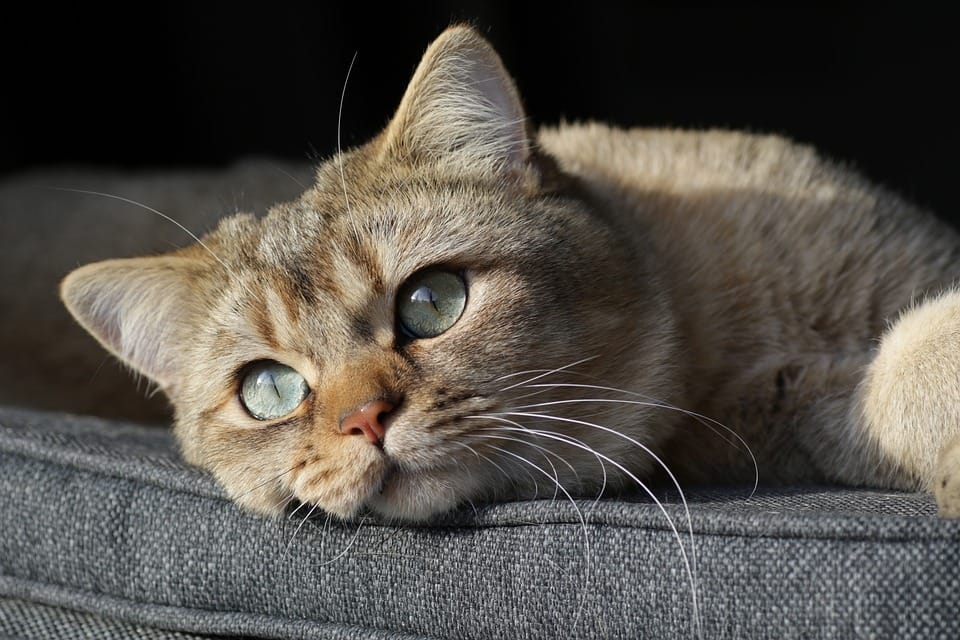- Your Pet's Wellbeing
- Posts
- Why Did My Cat Stop Purring?
Why Did My Cat Stop Purring?
When to be concerned
Purring is one of the most endearing sounds a cat can make. It’s the soft rumble that tells us that our feline friend is content, comfortable, and happy to be near us. Therefore, when your cat suddenly stops purring, it can feel a little unsettling. However, there are several possible reasons behind this change, and not all of them are cause for alarm.

By understanding why cats purr in the first place, it can help you figure out whether your kitty’s silence is normal, temporary, or something that needs a closer look.
Why Do Cats Purr in the First Place?
Before we dive into why cats stop purring, it’s important to know why they purr in the first place. Purring isn’t just about happiness as cats purr for multiple reasons:
Comfort and Contentment:
Most often, cats purr when they’re relaxed, cuddled up, or being pet.
Self-Soothing:
Cats may purr when stressed, nervous, or even in pain, as the vibration can be calming.
Healing:
Some research suggests that purring at specific frequencies may help with bone healing, tissue repair, and pain relief.
Communication:
Kittens purr to let their mothers know they’re safe and are well fed while adult cats sometimes use purring as a way to bond with humans or other cats.
While we usually associate purring with happiness, it’s actually a complex form of feline communication and self-care.
Possible Reasons Your Cat Stopped Purring
If your once-chatty kitty suddenly goes quiet or if you have a cat that doesn’t purr at all, there are a few reasons that may explain the silence.
1. Personality Differences
Some cats are naturally the “purring type”, while others are much quieter by nature. It’s possible your cat just isn’t the type to purr often, or just that your cat might have stopped doing it as frequently as he or she has grown older.
2. Stress or Anxiety
Cats are sensitive by nature. A change in routine, a new dog or cat in the house, or even moving furniture around can make your cat feel unsettled or anxious. Stress can sometimes cause cats to stop purring because they’re too focused on adjusting to their environment.
3. Illness or Pain
Because cats often hide their discomfort or pain, one subtle clue can be a change in vocalization, including a lack of purring. Respiratory issues, sore throats, or dental problems could make it physically difficult for your cat to purr. If the silence continues and you notice other changes like less appetite, hiding more, or being less social, it’s worth scheduling a vet visit.
4. Vocal Cord Changes
Just like humans, cats can experience changes in their vocal cords. Overuse, age, or even mild injuries can affect how much or how easily they purr.
5. A Change in How They Communicate
Some cats simply evolve in how they show affection. Instead of purring, they may follow you around, nuzzle you, or gently head-butt you. If your cat is still affectionate but isn’t purring, it may just be their new way of showing love.
Should You Be Worried if Your Cat Stops Purring?
Not necessarily. If your cat has always purred but suddenly stops, it’s worth paying attention. Look for other changes in behavior, like eating less, grooming less, or hiding more often. If your cat seems otherwise healthy and happy, your kitty might just be taking a break from purring. But if the silence is paired with other concerning signs, it’s always better to check in with your veterinarian.
Do Older Cats Stop Purring?
It’s not unusual for older cats to purr less often. As cats age, they may become quieter overall, using fewer vocalizations than they did in their younger years. Some senior cats also deal with health issues, like arthritis or respiratory changes, which can make purring less frequent or more difficult. That being said, many older cats still purr regularly, it just might not be as loud or as frequent as before.
If your senior cat suddenly stops purring altogether, it’s a good idea to monitor your cat closely and consult your vet to rule out any health problems.
How to Encourage Your Cat to Purr Again
If you’re missing that sweet, soothing purring sound, there are gentle ways to encourage your cat to purr again:
Pet Your Cat In Their Favorite Spot:
Many cats purr when they are scratched under the chin, behind the ears, or along their back.
Create a Calm Environment:
Soft blankets, cozy spaces, and quiet time together can help your cat relax enough to purr.
Talk to Your Cat:
Some cats purr in response to your voice, so spending time talking softly to your kitty can encourage the behavior.
Play and Bond:
Engaging in playtime or just being near your cat can spark those happy purrs to return.
Remember, forcing your cat won’t help and could be counterproductive; your cat will purr when he or she feels comfortable.
Final Thoughts
While we love it when our cats purr, if your cat has stopped purring, it could be anything from personality quirks to stress or minor health issues. While most cases aren’t cause for alarm, it’s always wise to keep an eye on your cat’s overall wellbeing. As always, if there are sudden changes in your cat’s behavior, it might be time to see your veterinarian.